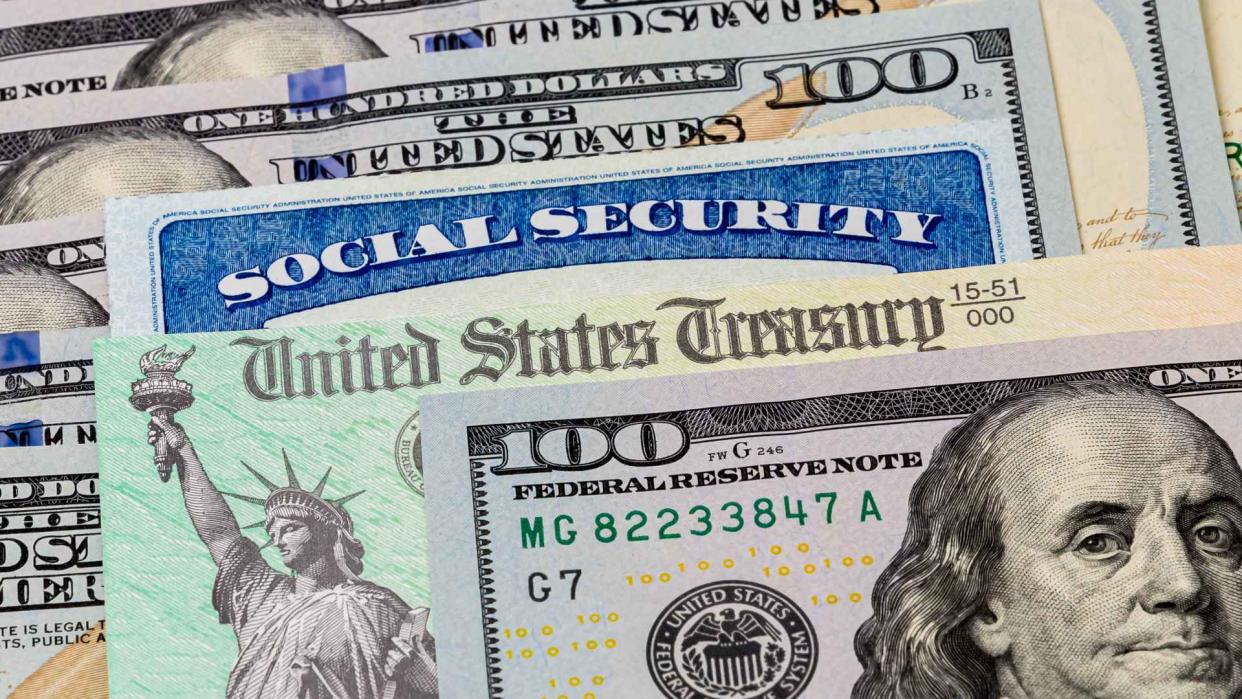6 Factors That Impact the Size of Your Social Security Check

Nearly 67 million Americans rely on Social Security benefits, the vast majority of whom are retirees, their spouses, dependents and surviving beneficiaries. The average among them gets $1,762 per month.
If you reach full retirement age in 2023, the most you can get is $3,627 — but the maximum for those who retire at 62 is just $2,572. If you claim benefits at age 70 in 2023, on the other hand, you can collect up to $4,555.
Social Security Cuts: States That Would Be Impacted the Least
Learn: 3 Ways To Recession-Proof Your Retirement
That’s a difference of $1,983 per month between the lowest maximum payment and the highest — and age is just one way your benefits can grow or shrink.
Here are the factors that can impact the size of your Social Security check.
The Age You Claim
Your age at the time you claim Social Security impacts the size of your check more than nearly any other factor. You can start collecting benefits as early as 62, but claiming early will cost you.
The SSA docks you 5/9 of 1% for every month up to 36 months that you claim before your full retirement age, which is 67 for those born in 1960 or later. You lose 5/12 of 1% every month after 36 months.
It’s a massive hit. If your normal retirement age is 67, claiming at 62 will cost you 30% — what would have been a $1,000 check shrinks to just $700.
Conversely, you can grow your check by 2/3 of 1% for every month you wait to claim after your full retirement age, up to 70. That’s 8% extra per year for up to three years, which turns a $1,000 check into $1,240.
7 Frugal Habits That Rarely Pay Off for Boomers in Retirement
Your Work and Income History
The SSA issues credits for working, and you have to earn at least 40 of them to become eligible for Social Security. You can earn up to four credits per year, which means you must work for at least 10 years to collect benefits. You have to earn a minimum income to tally a credit, and that threshold increases annually. In 2023, it’s $1,640 per credit, or $6,560 per year.
The SSA bases your payment on your highest-earning 35 years. Those who worked fewer than 35 years will get a smaller benefit because every year under counts as zero.
You Receive a Government Pension
The SSA adjusts or “indexes” your actual income to account for average wage changes since you started earning and then applies the indexed amount to your highest-earning 35 years. However, the SSA uses a different indexing formula for government workers who receive pensions, which could alter your benefit amount.
You Earn Money While Claiming Early
You can still work while collecting Social Security; but, if you claim benefits early, the SSA limits how much you can earn without seeing a reduction in your check. In 2023, the limit is $21,240, and the agency will temporarily deduct $1 from your benefit for every $2 you earn over that amount. If you’re set to reach full retirement age the year you claim, the income limit increases to $56,520, and the SSA deducts $1 for every three you earn over that threshold.
You never receive less than your full benefit once you reach your normal retirement age.
You’re a High Earner Who Pays More for Medicare
High earners with income over a certain threshold pay more for Medicare Part B and prescription drug coverage. Currently, the threshold is $97,000 for individuals and $194,000 for married couples filing jointly. Beyond that, you pay the base premium plus a certain amount that gradually increases the more you earn.
The SSA deducts the over-premium amount from the monthly benefit it pays to those high-income earners.
Your Benefits Are Garnished or Levied
The IRS can levy up to 15% of your monthly payments to settle overdue federal tax bills. Your check also might be garnished for past-due child support, alimony or restitution.
The Department of the Treasury also can withhold part of your payments to settle debts you owe to other government agencies. For example, the government can take up to 15% of your benefit if you default on federal student loans.
SSI payments cannot be levied or garnished, and private lenders, debt collectors, credit card companies and medical providers cannot come for your Social Security benefits no matter how much you owe.
More From GOBankingRates
This article originally appeared on GOBankingRates.com: 6 Factors That Impact the Size of Your Social Security Check
